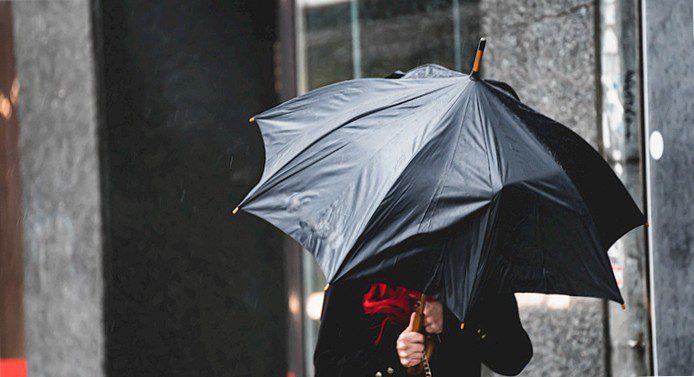
Autumn is often stormy, even on the stock markets. Especially in politics, Burkhard Varnholt of Credit Suisse expects some gusts in the coming weeks. Anti-cyclical investment behavior as well as good diversification are necessary, he said.
Since 1917, the U.S. has had a debt ceiling that specifies the maximum amount of government bonds that the U.S. Treasury can borrow. In the past, this ceiling has already been moved up more than a hundred times – usually without much fuss. This is because such a shift or. Suspension of debt ceiling does not increase government spending, nor does it authorize spending for future budget proposals. It simply allows the Treasury to pay for spending that has already been approved politically.
"But given the polarization of American society, increases in the debt ceiling that should be a mere formality are being instrumentalized for political showboating. This could turn into a real problem, because the threat to cut off the government's money supply includes the unlikely but serious collateral risk that the U.S. could default on its government bonds in extremis", explains Burkhard Varnholt, CIO at Credit Suisse Switzerland.
If this were to happen, the consequences would be catastrophic. U.S. government debt is the most important asset in global capital markets. The domino effects of a formal U.S. default would be devastating for the financial system and for the global economy, including the U.S., according to investment strategist. By the end of this month, the U.S. Senate and House of Representatives will have to agree on raising the debt ceiling from the current 22 to a new 28 trillion euros. U.S. dollars to some. Because that's the amount by which recent fiscal legislation has increased the U.S.'s financial needs. But the Treasury may not fulfill obligations already enacted into law until it receives approval from the two feuding chambers of Congress for a corresponding increase in the debt ceiling. "It is quite possible that there will be another government shutdown there in 2021. Certainly Republicans and Democrats will then blame each other for this. In the end, it's the state employees who lose out – and the country loses its international reputation", warns Varnholt.
Protective mechanisms against "accidental insolvency
Two safeguards are designed to protect the U.S. from "accidental insolvency" preserve. First, the U.S. Treasury is allowed to take "extraordinary measures" in times of government stalemate Take action to gain liquidity and time. To that end, the nonpartisan Congressional Budget Office (CBO) creates financial plans each year to show policymakers how long money and time would last in an emergency scenario. This year, however, these calculations are less reliable than normal because of the pandemic, warns the CBO and U.S. Treasury Secretary Janet Yellen. Raising the debt limit, therefore, is necessary to prevent delinquencies on government spending and a default on government debt, it said.
Second, the Federal Reserve (Fed) would intervene if such a default were imminent. If necessary, a country that is in debt in its own currency can print any amount it wants to pay off the debt, says Varnholt: "However, creditors would then avoid this currency for a very long time. It is likely that, in an emergency, the Federal Reserve would temporarily assume the Treasury's financing needs in full through a specially created facility." This would amount to indirect monetization and would be in a legal gray area. But it would be the lesser of two evils politically. Nevertheless, such an intervention would have high costs: downgrading of AAA ratings, rising cost of capital, volatility in foreign exchange and financial markets, to name only the obvious ones.
Further government shutdown expected
Since 1980, government shutdowns have occurred nine times in the U.S. For the most part, the government has been limited to intervening in "non-systemic" business areas business areas, such as museums or national parks, and put employees on compulsory unpaid leave. But in the last shutdown of the federal administration in 2018/2019, a total of 800,000 state employees temporarily received no pay – including 420,000 from "systemically important areas" such as the police, fire department or school system.
"Despite the political and socioeconomic toll of such government shutdowns, the narrow majority vote suggests that the ill-fated game of vabanques will repeat itself in the coming weeks with an unknown outcome. In this tug-of-war, the controversial second infrastructure package on 2.5 trillion US dollars play a role", says Varnholt.
An autumn storm seldom comes alone
In addition, the CIO can already see other storms brewing. He expects turbulence in the event that Fed President Jerome Powell is unexpectedly not re-elected next spring. He is more relaxed about the German elections: "Stock markets reflect expectations of corporate profits, interest rates and currencies – and party platforms usually have less influence on these than is often assumed. Either way, a coalition of at least three parties seems likely in Berlin, which the markets again like because it ties the hands of politicians.", says Varnholt.
He also expects that further waves of refugees from Afghanistan and other trouble spots are likely to be felt on the stock markets as well. This could move the currency markets, weigh on the euro and once again strengthen the appreciation pressure in the Swiss franc.
For investors, good diversification and a countercyclical investment process paid off in particular in the face of the gathering storms.